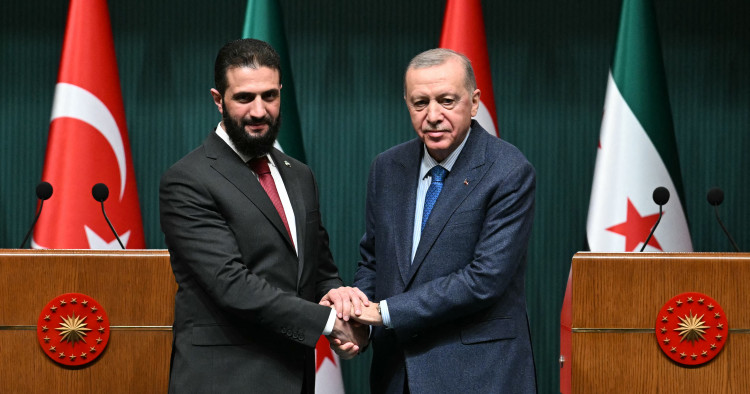When Syrian dictator Bashar al-Assad was toppled late last year, it looked like a golden opportunity for Turkish President Recep Tayyip Erdogan. For more than a decade, the war next door had burdened Ankara with problems that it could not fix: millions of Syrian refugees straining domestic politics, U.S.-backed Kurdish militias entrenching along Turkey’s border, and a battlefield dominated by Russian and Iranian influence that left Ankara exposed to Moscow’s and Tehran’s whims.
The Middle East Institute (MEI) is an independent, non-partisan, non-for-profit, educational organization. It does not engage in advocacy and its scholars’ opinions are their own. MEI welcomes financial donations, but retains sole editorial control over its work and its publications reflect only the authors’ views. For a listing of MEI donors, please click here.













